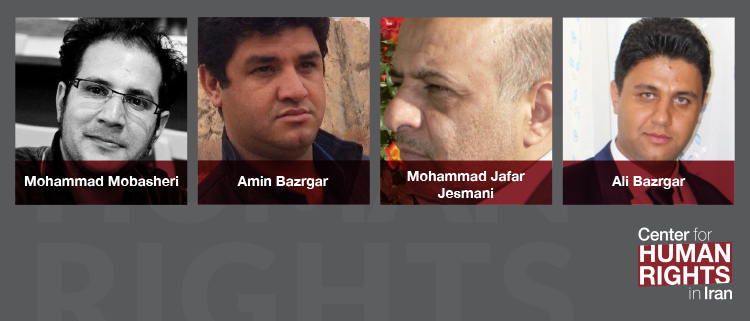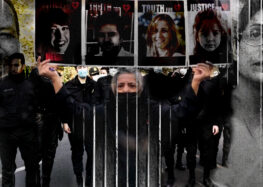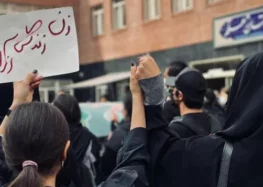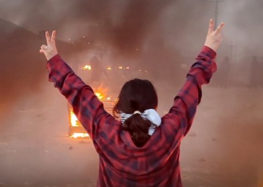Rouhani Campaigner Among Activists Arrested in Southern Iran For Alleged Opposition to Compulsory Hijab

A former campaign manager for President Hassan Rouhani is among the five activists who have been arrested by Iran’s Islamic Revolutionary Guard Corps in the city of Estahban, Fars Province, since late February 2018.
No charges have been announced but the civil and political rights activists have been accused of opposing the country’s compulsory hijab rules, a civil rights activist with knowledge about the arrests told the Center for Human Rights in Iran (CHRI).
“It seems they were arrested following angry and threatening reactions by the prosecutor and Friday Prayer leader of Estahban against these individuals for their participation in and speeches at a gathering at the Shandiz Gardens in Isfahan [on February 1] to discuss the forced hijab and social justice,” said the source who requested anonymity for security reasons.
“Some of these radical conservatives are distorting the speeches made at the gathering in Isfahan,” the source added. “They handed out flyers throughout the city and on social media… Estahban is a small town and naturally, there’s greater pressure on civil rights and political activists.”
Amin Bazrgar, the former regional campaign manager for President Rouhani, was arrested on March 7 and Amin Mobasheri, who holds a graduate degree in philosophy, was arrested on February 26.
Reza Hamdi, the editor of a reformist news channel on the Telegram messaging network, was arrested on March 1; Ali Bazrgar, a reformist political activist, was arrested on February 28; and Mohammad Jafar Jesmani, a retired teacher and former senior Rouhani campaign worker in Estahban, was arrested on March 7.
Hamedi was released on bail four days later but was forced to shut down his Telegram channel, which provided news and information about Estahban to nearly 2,000 followers.
“We tried to preserve a climate where we could communicate and discuss our demands for the city but unfortunately it has come to a point where we are being blamed for all the problems on social media and as a result, have to say goodbye to our friends and lay down our banner,” wrote Hamedi on his last post before deleting the page.
Since late December 2017, dozens of Iranian women known as the Girls of Revolution Street have protested against Iran’s compulsory hijab by removing their headscarves in public in various cities around the country.
At least 30 women and men have been arrested since January and some have already been sentenced to prison.
Supreme Leader Ali Khamenei has described the anti-compulsory-hijab protests as “small and insignificant” and accused the protesters of being tricked by foreign countries without providing any evidence for his claim.
Despite being expected to toe the supreme leader’s line, not all politicians in Iran agree with Khamenei.
Nahid Tajeddin, a female member of the Iranian Parliament from the city of Isfahan, tweeted on March 2: “The Girls of Revolution St. are the same girls who have been stopped behind the gates of gender discrimination in university enrollment quotas, in the workplace, in political participation, in getting government management posts, in sports arenas, in performing live music on stage and…”
In February 2018, the office of President Hassan Rouhani released a government-conducted survey from 2014 showing that nearly half of all Iranians believed that wearing the hijab should be a personal choice.






